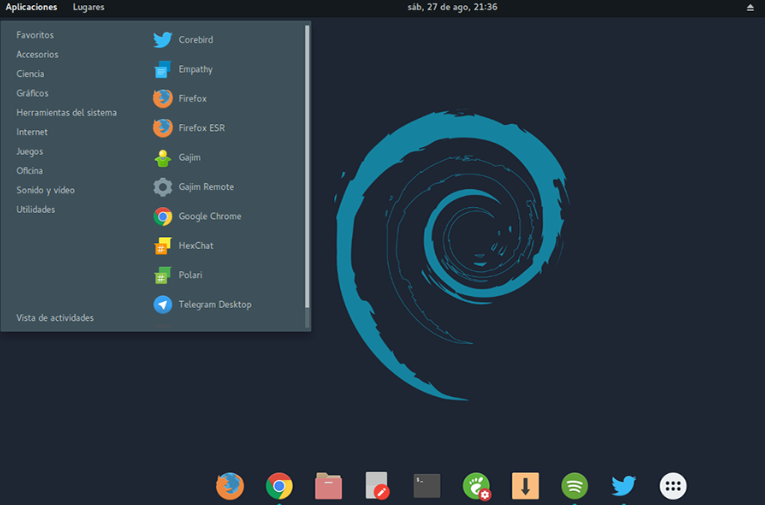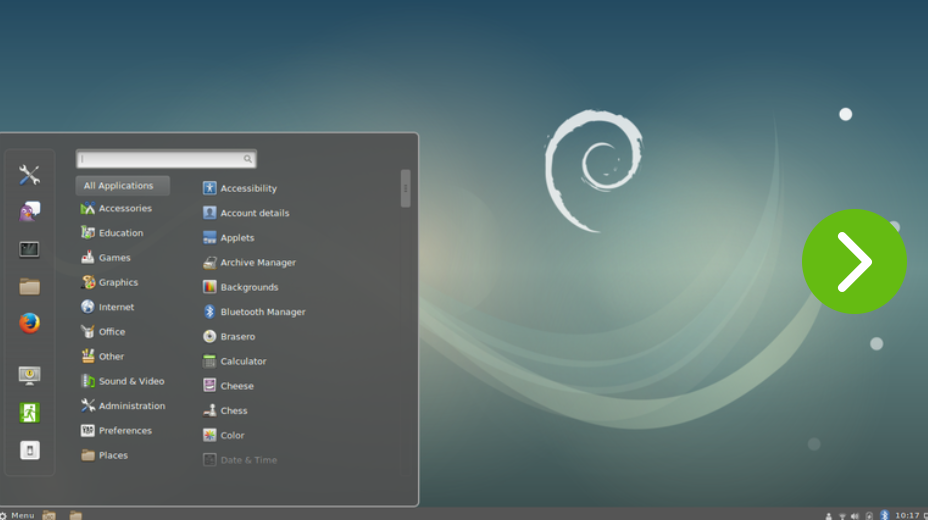The operating system (operating system) you pick can fundamentally influence your figuring experience, productivity, and what applications you can run. Among the plenty of choices accessible today, the Debian operating system stands apart as a powerful, stable, and flexible decision for some clients, from novices to prepared IT experts. This inside-and-out audit will investigate the different viewpoints and advantages of the Debian operating system, giving bits of knowledge into why it very well may be the ideal operating system for your computing needs.
An Overview of Debian OS
Debian, sent off in 1993 by the Debian project, encapsulates the ethos of open-source improvement and the quest for a generally free working framework. It tackles the force of the Linux part, with arrangements to use others like FreeBSD, epitomizing its adaptability across various figuring conditions. Debian’s engineering takes care of a wide range of clients, including work area enthusiasts, server administrators, and distributed computing, because fastidiously organized vaults house a far-reaching cluster of programming bundles.
This conveyance separates itself by sticking to a rigid improvement cycle, guaranteeing that each bundle, whether it’s for the work area climate or server application, fulfills the most elevated guidelines of soundness and security. The foundational principle of Debian’s vast, comprehensive software collection is to remain entirely accessible and free, reinforcing its position not just as an operating system, but as a statement in the open-source community. With its rich history and a forward-thinking approach, Debian continues to shape the landscape of free operating systems, inviting users into a world where flexibility, reliability, and freedom are paramount.
The Unmatched Stability of Debian OS
Debian is renowned for its unwavering stability, a cornerstone that significantly enhances its appeal for both server and desktop environments. By segregating its vast array of software into three distinct branches – stable, testing, and unstable – Debian ensures a meticulously vetted, dependable foundation for any application it underpins. The stable branch, in particular, benefits from rigorous testing and regular updates, meticulously fine-tuned to avoid the introduction of bugs or system instability.
This deliberate, cautious approach to software updates is a testament to Debian’s prioritization of system reliability over cutting-edge features. Such reliability is especially critical in server settings and applications where consistent performance and uptime are non-negotiable. Through this structured and disciplined methodology, Debian has set a benchmark for system stability that not only meets but often exceeds the expectations of IT professionals and organizations globally, solidifying its reputation as a steadfast choice in the diverse landscape of operating systems.
Comprehensive Security Features
In Debian, shielding the framework against possible dangers and weaknesses is a significant thought. The Debian Security Group, known for its effectiveness, conducts careful security reviews and guarantees the opportune spread of updates and fixes, situating Debian as a forerunner in the proactive security of the executives among open-source distributions.
The appropriation incorporates support for different security-upgraded Linux parts, for example, SELinux and AppArmor, which offer an extra security layer, bracing the framework against unapproved access and other security dangers. These systems work in show to keep a high security standard, going with Debian is a solid decision for conditions where security can’t be compromised. Through these practices, Debian exhibits its resolute obligation to client security, utilizing a far-reaching set-up of devices and conventions to safeguard frameworks in a quickly developing computerized scene.
The Debian Package Management System
One of Debian OS’s most praised features is its sophisticated package management system. At the core of this framework lies the Advanced Packaging Tool (APT), a strong utility that smoothes out the most common way of overseeing programming on Debian establishments. Well-suited not only works with the easy establishment and expulsion of programming bundles but also handles the complicated errand of overseeing conditions, guaranteeing that all product parts work amicably together.
This usefulness decisively diminishes the potential for programming clashes and framework precariousness, making bundling the executives an issue-free encounter for clients. Also, Able’s capacity to naturally recover refreshes and apply patches adds to Debian’s general security and strength, keeping the framework defended against weaknesses. This bundle of the executive’s framework, prestigious for its proficiency and dependability, highlights Debian’s obligation to give an easy-to-understand figuring climate without forfeiting the adaptability and control that exceptional clients request.
Debian’s Commitment to Free Software
At the core of Debian’s way of thinking is a significant devotion to the standards of free programming, a conviction enunciated through the Debian Common agreement. This directing record vows the conveyance’s faithfulness to give a framework that isn’t simply open yet additionally regards the client’s opportunity. In arrangement with this ethos, Debian’s storehouses are fastidiously organized to guarantee they contain only free programming. This position highlights Debian’s job not simply as a working framework but rather as a promoter of programming opportunities.
The accessibility of sans non-vaults affirms functional requirements for exclusive drivers or programming, offering a sober-minded approach while keeping a principled position on the opportunity. Through this fair point of view, Debian lines up with the requirements of clients who focus on moral programming decisions without forcing superfluous limits, encouraging a climate of inclusivity and regard for client independence. This responsibility is a demonstration of Debian’s getting through devotion to free programming development, supporting the specialized as well as the moral elements of figuring in the cutting-edge age.
Flexibility and Customization Options
Debian OS sets itself apart with its exceptional adaptability and a myriad of customization options that cater to a wide array of preferences and requirements. The distribution enables users to tailor their computing experience to their liking by offering a selection of various desktop environments, including but not limited to GNOME, KDE Plasma, and XFCE. This flexibility ensures that whether a user prefers a more contemporary or a traditional desktop layout, Debian has an option to satisfy those preferences.
Past the work area climate, Debian’s building support stretches out to various equipment designs, from the broadly utilized x86-64 to the more particular ARM structures, in this way obliging a different scope of gadgets from personal computers to cell phones and servers. This inclusivity in equipment similarity features Debian’s obligation to give an adjustable and open stage for everybody, no matter what equipment they use.
Furthermore, the capacity to calibrate framework settings and look over a broad assortment of programming bundles permits clients to construct an exceptionally customized processing climate that lines up with their particular requirements and work processes, exhibiting Debian’s flexibility as a working framework.
A Thriving Community and Support Network
The dynamic environment encompassing Debian is supported by a functioning and inviting local area that incorporates a great many members, including engineers, fans, and end clients. This people group assumes a significant part in not just molding the future bearing of the Debian project but also giving an organization of help to its individuals. Through different stages, for example, gatherings, IRC channels, and mailing records, people can take part in conversations, look for specialized help, and trade thoughts.
This collaboration and knowledge sharing are instrumental in solving problems, enhancing the Debian experience, and driving innovation within the project. Accessibility to such a wealth of community resources ensures that users of all proficiency levels, from novices embarking on their Debian journey to experts refining their skills, have the necessary support at their fingertips. Participation in this community fosters a sense of belonging and offers an opportunity to contribute to an endeavor that is much larger than the sum of its parts, reinforcing the communal spirit that Debian embodies.
Why Choose Debian OS for Your Computing Needs?
Choosing the Debian operating system for your processing offers a multi-layered set-up of benefits, taking care of a wide range of clients. Its unfaltering obligation to strength guarantees that the two servers and PCs work unmatched consistently, alleviating worries of successive disturbances or framework disappointments. The accentuation of extensive safety efforts, including ordinary updates and fixes, positions Debian as a fort against the developing dangers in the computerized space, giving true serenity to clients focusing on wellbeing.
Moreover, Debian’s refined bundle of the executive’s framework typifies proficiency, working on programming establishments and support, in this manner improving the client experience by making it clear and struggle-free. The primary standard of supporting just free programming mirrors Debian’s devotion to client independence and moral processing works, pursuing it as an optimal decision for the people who esteem opportunity in their product use.
Additionally, the unparalleled flexibility to customize your setup, from choosing your preferred desktop environment to supporting a variety of hardware configurations, ensures that Debian adapts to your specific needs rather than the other way around. Combined with a dynamic and strong local area, Debian stands as a working framework, however as a door to a flourishing environment where clients and donors have the same advantage from shared information and development. This special blend of elements makes the Debian operating system a recognized and insightful decision for anybody’s processing prerequisites.


